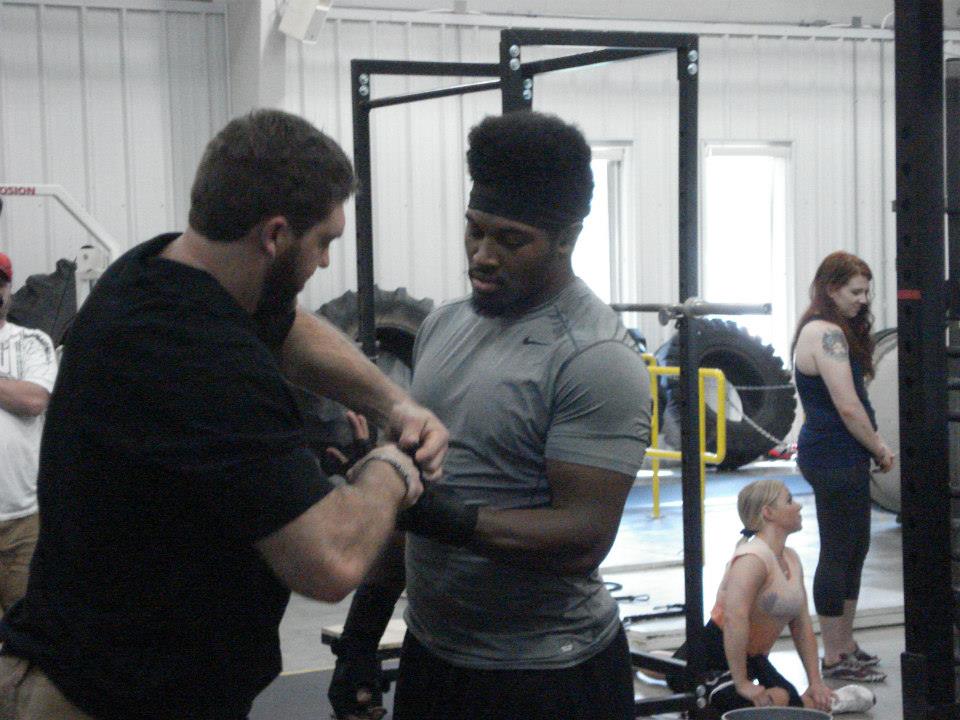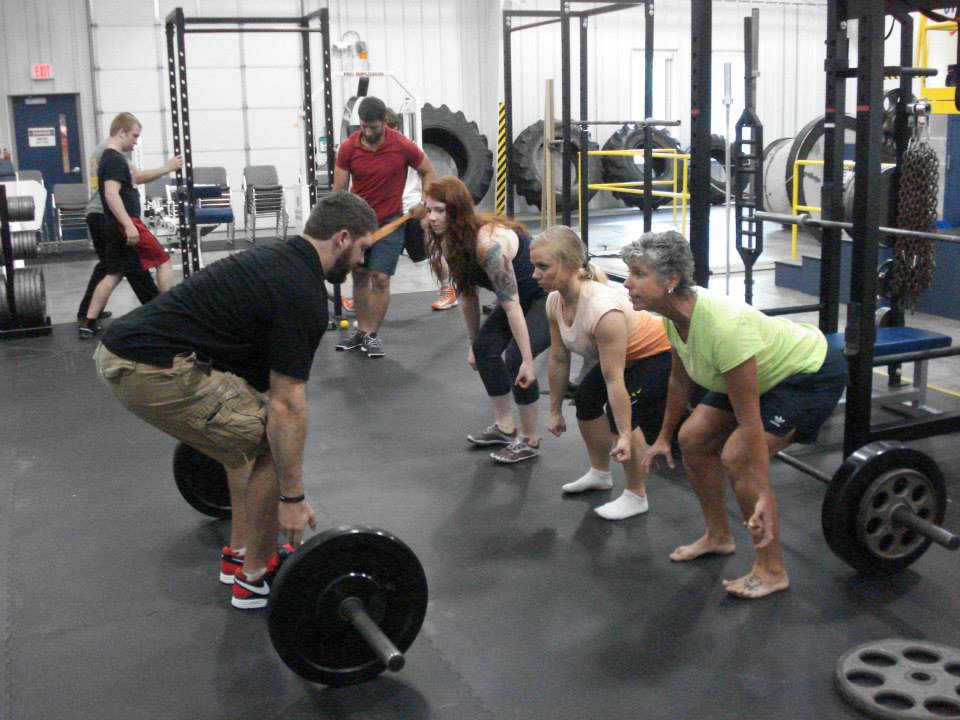
With the fitness industry booming like never before, tons of people are looking to get into the personal training profession. From the outside, it looks like a profession where you get to hang out at the gym all day, make great money and get paid to be fit. In fact, I've heard a radio commercial for a top name certification where a lady says, “I basically get paid really well to work out all day.”
Well, for anyone not in the profession who is thinking that this is the case, let me go ahead and burst your bubble and tell you that the profession isn't anything like that. In fact, if I could tell you one thing, it would be don't become a trainer because you like working out. Become a personal trainer because you're passionate about helping people, you're passionate about fitness and you're passionate about ensuring that people are doing things the correct way. At my facility, NBS Fitness, we created a trainer development program to develop people who want to become personal trainers into great trainers. What constitutes a great trainer? Read on to find out.
We define a great personal trainer with three aspects of the criteria: skilled, acknowledged and wealthy. Each of these has its own dynamic components, so let’s look into them.
Skilled
There are many skills required to be a great personal trainer. Just like a woodworker who develops his woodworking skills over many years, the skills of a great personal trainer can’t be learned in an 'over the weekend' certification, from reading articles online or from training itself. It takes a combination of education, applied knowledge, experience and experimentation to truly hone the skills necessary to be great.
Professional skills: Professional skills are the “do your job” skills that we all think about when we think about personal training. This is the knowledge of anatomy, physiology, biomechanics, programming and exercise technique that are the bread and butter for training people. These are the skills that people pay you for. Just like a mechanic who is paid for his knowledge of how a car works and his ability to fix a problem faster than the owner of the car who doesn't have the necessary knowledge, a trainer is paid for his ability to get a person better results faster than he could himself (and the human body is far more complicated than any car). These skills require study, constant study. Ideally, every trainer would have a degree, a top level certification and a solid internship under his belt. But even after all that, you're still at the beginning of your education. These provide you with an educational and practical base from which you can build and judge future knowledge. They give you the tools needed to self-educate.
As you continue throughout your career, you'll develop these skills in a way that is truly unique. Every trainer has his own way of seeing and doing things. As your career progresses, so will your skill sets. Every training session, every client, is a chance to develop.
Personal skills: One of the biggest challenges that beginning trainers face is how to verbally and physically express what they want a client to do in a way that the client understands. The ability to communicate is vital to being a great trainer. It's also important to be organized, innovative, dependable and attentive. The list of personal skills goes on and on. As a trainer, you'll spend the majority of your day in the presence of other people. Whether it’s your clients, your gym manager, prospects or other trainers, how you interact with people will play a major role in how far you can go as a trainer. In a world where most people put themselves first, you can get ahead by putting yourself last. Overdeliver with your clients, overperform for your boss and your company, treat your peers with respect and be respectful to your competition. If you’re looking for something to separate you from the crowd, this is it.
Business skills: While many trainers have a ton of knowledge and lots of personal skills, they fail to find success due to their lack of business skills. I know many people go into training to avoid the “cubicle,” but you can’t ignore the necessity of basic business skills when it comes to building a successful business—your training business! A base level knowledge of marketing, branding, accounting, management and several others will go a long way in helping you grow your training business.
America is full of gyms and all those gyms are full of trainers. How are you going to position yourself against all of them to stand out? Why should someone hire you? What should your price points be? What services should you offer? What is your financial strategy for good months and bad months? Start asking yourself these questions and many more like them and you’ll be thinking on a level far above most other trainers. This is another area that requires a lot of study. Unlike many of the professional skills, you may not feel comfortable teaching yourself business skills, so you may want to consider hiring a business consultant or finding a business mentor to help you. Start viewing your training like a business and you’ll be a step ahead.
Acknowledged
Any good craftsman will receive some level of acknowledgement for his work. Whether you go to a restaurant and remark on how good your desert was or tell the person who cleans your car how good a job he did, acknowledgement is part of the recognition of a job well done. Personal training isn't any different. If you are doing a great job with your clients and getting the results that they want, you will receive recognition. There are three levels at which this can occur.
Client acknowledgement: The most important level is the client level. Your clients are the ones paying you for your services and looking to get the results that they paid for. On this note, it does take a team effort to get results, and part of your job as a trainer is to make sure that the client is aware of and committed to the specific process that he will have to do to reach those results. Your clients are working with you daily and are experiencing the previously mentioned skills, so they should be the first to recognize your quality of craft. If your clients don’t think that you're amazing, you need to reanalyze your process. It doesn’t always mean that you don’t have the skills to be a good trainer. You could have done a poor job of communicating the process to a client or, in some instances, just taken on the wrong type of client (personalities clash sometimes). In the end, if you’re doing everything you should be doing, your clients will acknowledge your skills and spread the word for you.
Peer acknowledgement: Trainers watch each other train and who better to really know how good a job you’re doing than someone else in the profession. Although there is plenty of competition among trainers, most will recognize if someone is skilled at his job. Whether through working at the same gym or through social media, peer acknowledgement is the level of recognition above that of your clients. When other great trainers start recognizing you for your abilities and accomplishments, you know you're headed on the right track.
Industry acknowledgement: The final level of acknowledgement comes from the fitness industry. This can manifest itself in a variety of ways. You could be asked to write for someone, give a speech at a seminar, speak on television, coach a clinic, or just be referred by someone who knew of you that maybe you didn’t know. Training celebrity doesn’t exactly equate to “Great Trainer,” so don’t feel like you have to be the next trainer on “The Biggest Loser.” However, as more and more people start recognizing you for your abilities, you will start to see more industry acknowledgement. This is also where business skills can play a huge roll.
Wealth
I define wealth in this sense as the ability to live the life that you want from doing the job that you want. You know more than any other trainer on the planet, but if you can’t make enough money to stay in the industry, how good of a trainer are you? How can you positively impact the industry if you can’t stay in it? This doesn’t mean that you have to make six figures. It just means that you have to be able to provide the type of life for yourself and/or your family that you want. If you want to live in a van, surf all day and chill by the beach, you won’t have to make as much as someone who wants to drive expensive cars and live in expensive houses. I’ve been on both sides of the spectrum for income and they both have their pros and cons. When you aren't making much, life is pretty simple. The more money you make, the more you have to know how to properly manage your money. Wealth isn't an evil thing. Charging people money for a quality service is the nature of commerce. Know the limitations and possibilities of the industry and decide where you want to fall.
I thought I would be a lot of other things before I would be a personal trainer. Looking back, I can see how the path was set and everything fell into place for me to be where I am. Now I have the opportunity to share my experiences and impact the industry in a positive way. I want the profession to grow positively, and when I leave, I want there to be far more great trainers than when I first started. If you’re someone with aspirations to be a great trainer, take note of what I have laid out for you, see where you fall and determine what you need to do to be great.













3 Comments